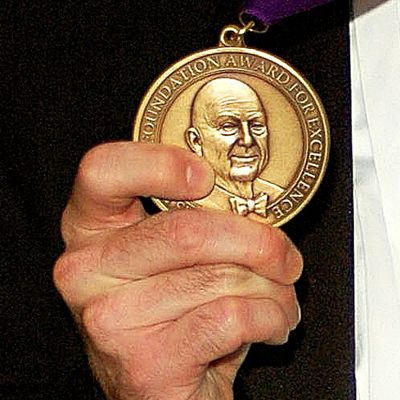
Over the summer, Grub Street caught up with Seattle chef Edouardo Jordan, winner of the 2018 James Beard Awards for Best New Restaurant and Best Chef: Northwest. While reflecting on the astounding diversity of this year’s awards, Jordan noted, “We can’t say the culinary world is great yet. We had one stellar year and that was just the James Beard Awards. That doesn’t mean next year’s going to be great.”
The James Beard Foundation, it seems, would like to change that. Today, the 28-year-old organization announced sweeping changes to its policies surrounding the 2019 awards in an effort to “increase gender, race, and ethnic representation in the governance and outcomes of the Awards, as well as to increase transparency of the judging process, and to make entry to the Awards more accessible than ever before.”
As with most sweeping changes by decades-old organizations, the new policies are both wonky and opaque, but Grub’s here to make as much sense of them as possible. Here’s what you need to know:
The racial makeup of committees and judging panels will reflect the racial makeup of the United States
Every year, volunteers choose who will judge the awards and for 2019, they’ve been ordered to make sure the various panels that oversee the awards, at the very least, are representative of the U.S. Census (presumably the one conducted in 2010). Last time the government checked, the U.S. population was 67 percent white, 14 percent Hispanic, 13 percent black, and 5 percent Asian. There is also “an intent to work toward parity over time.” To reach their goal, the volunteers will either replace judges and committee members whose term limits are up or increase the total number of judges and committee members in each group.
The JBF Who’s Who of Food and Beverage in America Awards are dead
Since 1984, the Foundation has awarded “the most accomplished food and beverage professionals in the country” with the Who’s Who of Food and Beverage in America Award. The problem is that past honorees helped pick out the next group of award winners. Because that system doesn’t fit with this new inclusivity policy, the Who’s Who Awards are being retired.
Starting on October 15, there will be an open call for next year’s James Beard Foundation’s Leadership Awards
For the first time, the James Beard Foundation will allow the public to nominate the recipients of its Leadership Awards, “with the goal of broadening the pool of Leadership Award candidates working in sustainability, food justice, and public health.” Ultimately, though, the Leadership Awards committee will choose the winners.
Entry will be free for certain awards, while pieces published during the entry period will be admitted on a case-by-case basis
From October 15 to October 29, the James Beard Foundation will waive the entry fee for the Book, Broadcast Media, and Design Awards, while entry will be completely free for first-time entrants in the Journalism category throughout the entire entry period (October 15 to December 31). Meanwhile, those publishing stories during the entry period can write in for an exception, “which the committees will review on a case by case basis.”
The James Beard Foundation will be more transparent about how the judging process works and who does the judging
“So that all can walk away knowing the outcome was reached fairly and without bias,” the Foundation has created an updated policy page detailing “all parts of the submission, voting and judging process, including the names of committee members, key dates, and guidelines.” Additionally, last year’s edict to “consider restaurant culture and leadership values when making determinations” will remain in place while a longer fact-checking period has been baked into the judging process.
The 2019 James Beard Media Award will take place on April 26, with the Leadership and Awards Gala scheduled for May 5 and May 6, respectively.




